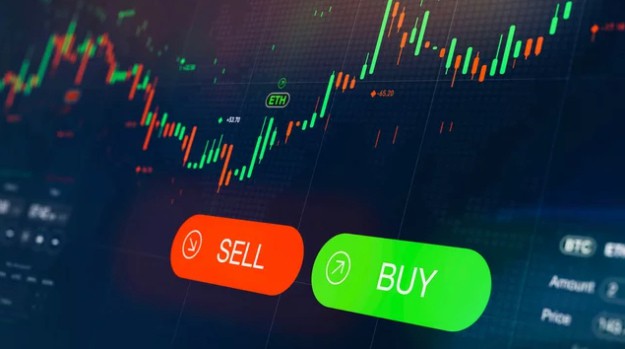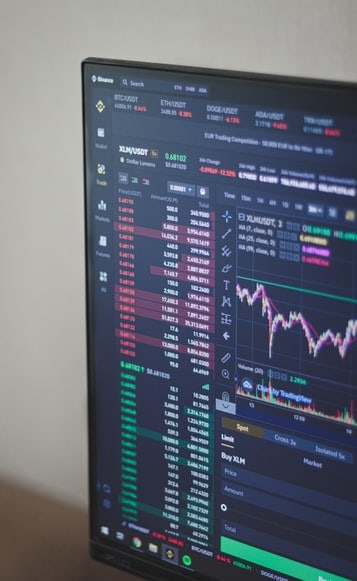Can my stock share on sale go unmatched such that I don’t sell it? No, it can’t happen like that. There is always a buyer waiting on the other side whenever you want to sell your stock shares. The stock market finds a suitable buyer for the stocks you want to sell.
Stock buyers and sellers are guided or compelled by the rise and fall of stock prices. An investor may be forced to sell their stocks when the said stock prices go high, like before Christmas, to realize profits or sell when prices fall, sometimes due to panic. But, who buys these stocks? Let’s find out.

The Balance Between Buyers and Sellers
No business transaction takes place without buyers and sellers. There must be a buyer to buy the items on offer from the seller. The same applies to the stock market. There’s always a buyer waiting on the other side to buy the stocks you’re selling.
A definite response to this question would be the regular investors. Every day brings new opportunities, which both new and experienced investors and day traders take advantage of. Investors will always buy available stocks and shares when conditions are conducive and healthy to their investment.
Other than the regular investors, there are market makers. This body exists in the market to create a balance between buyers and sellers. As no trade can occur when the two parties don’t exist, the market makers play a crucial role in ensuring that stock transactions flow.
But, if there are no buyers, can your broker buy your stock shares? No, the broker does not get involved in your stock transactions, they only act as intermediaries between buyer and sellers, and there isn’t a way they could buy your equities. This move cushions them against losses when your stock price fall.
Who Are Market Makers?
Market makers are a body in the stock market that tries to establish a balance between buyers and sellers of stock so that there are always successful transactions. At times, the market makers may act as buyers when you’re selling stock shares. Similarly, they can act as sellers when investors want to buy new stocks.
The market makers are a big body and incorporate some establishments offering stock brokerage services. Despite their good intentions to facilitate trade, it’s isn’t a guarantee that you’ll get the best price for stocks as their main concern is the provision of liquidity. The market makers are involved in the stocks transactions, where they either sell or buy stocks and later dispose them at higher prices expecting to generate profits. On a side note, if you are a beginner at the stock market, getting a robo advisor to help you make a viable investment plan could be a great idea.
A market maker does not automatically sell the stock they buy from you. They sometimes add these stocks to their inventory. Likewise, they can take their inventory’s shares and sell them to you. These inventories are a collection of securities that the company owns and may dispose of in the short term or hold on for a long term. Also, when it comes to companies and dividends, see this post that explains what happens to tax credit when the recipient is a Canadian resident or a non-resident (see ‘Taxes on Stock Gains Canada’ post, too).
Can There Be No Buyers Even When Stocks Are Available for Sale?
Yes, sometimes, stocks may lack buyers. While it is very rare to lack buyers in the stock market, there are some stocks that may lack investors willing to buy them. An example of a scenario where there may be no buyers is the pink sheets stocks and over-the-counter bulletin board. However, stocks (like common stocks explained here) on major exchange markets like the New York Stock Exchange will never lack buyers.
You may lack a buyer of your stocks for many reasons. Your limit price may not match with a willing buyer. This means that you won’t sell that stock until you get a perfect match for your stocks. You may find a buyer after a short while (see day trading in Canada), or you might have to wait for even days before you sell your stocks to other investors.

Note that your broker won’t play a role in your stock sale looking for a buyer. The broker will only execute your sell order so that your stocks can trade with other stocks in the market. The decision to sell or buy stocks all relies upon you. However, institutions such as market makers will always try to create a balance between buyers and sellers. They risk losing money if the prices drastically fall.
How Do You Sell Stocks?
Selling stocks needs you to do the following activities.
- Placing of the market order. The first step when selling stocks is to place the market order. You can arrange with your broker to sell your stock shares. This order, or rather request, presumes a market order to sell the stocks. The market order will accept the best stock price available at the very moment when it is executed. Such orders can be limit orders or market orders. When you execute a market order, you don’t dictate the price at which you sell your stocks. It will sell off at the best available price. On the other hand, when you place a limit order, you dictate the price at which your shares should sell. There will be no transaction until the other interested party meets the set price.
- Setting of bid and ask price. Limit orders don’t trade off immediately. It may take a little while before a perfect match is found. Many limit orders from the various market participants accumulate in the platform’s system awaiting allocation. This state results in the creation of every stock with a limit order. The bid price is the best price the stock shares can sell. For instance, a stock with a $100 bid and $100.10 ask price will be sold when a buyer meets the $100 price mark. Whoever made the $100 bid gets the stock. The best bid and ask prices aren’t a limit to the stock; if the price of the stock changes, there might arise other bids other than the best bid. There will always be bids lower than the best bid and ask prices higher than the set asking price.
- Selling of the stock shares. This is the final stage of the transaction. If you sell the stock shares by a market order, here is when you sign off the market order and transfer the ownership of the shares to your buyer. But, in the case of a limit order sell, this occurs when the buyer has met the bid price requirements.
Why Do Investors Sell Stocks?
Many factors drive investors into selling their stocks. Such reasons are as discussed below.
The Need to Rebalance Your Portfolio
You need to occasionally analyze your stock investment to establish where you need to rebalance. There might be a need to sell your stocks if you own high-performing stocks. This includes shares whose price increased. Possessing these stocks means your ranks in the company increases. Therefore, it is a good strategy to sell part of the stocks and reinvest it elsewhere.
You may also sell part of your stocks to reduce your stock investment and diversify your portfolio on other safer investments like bonds. When you subtract your age from 110, the value you get represents the volume to invest in stocks.
If your stock investment exceeds this value, then selling part of it should be the way to go.

Discovery of Better Investment Alternatives
Stock investment is a worthy investment. But, this should not limit you to investing in the stock markets alone. There are many other better investments you can opt for. When you discover a better investment alternative yet you don’t have the cash to fund it, you may consider selling your stocks to raise funds – on a side note, see how companies like Canada Nickel raise capital to expand their portfolio.
A Change in Your Investment Thesis
There is always a reason why an investor chooses to invest in a particular stock. With time, the initial reason may no longer apply, and you may need to make changes too. In your stock’s investment journey, you need to reach a point where you reflect on why you decided to invest in that stock and determine if this reason still stands.
You may consider selling the company’s shares if the company is experiencing a downfall in its market shares. The company’s competitors might be offering similar or even better stocks at a lower market price. Another reason you may need to sell your stocks is the drastic slowdown of sales growth. A change in the management system might or a buyout also be a good reason to sell all or part of your stocks in a company. This should be a concern if the new management lacks a viable management system that could lead the company into a crisis or huge debt accumulation. On another note, see why a company could buy back its stocks from the stock market.

You Urgently Need Money
Stock investment needs a long-term investment mind, which is where these Canadian stocks spring into mind (see also best stock to buy now in Canada).
However, you may once in a while need money.
Given that you don’t have other options, you can sell part of your blue-chip stocks to raise the amount you need.
The Bottom Line
Many reasons put you in a situation to sell your stocks. For the transaction to succeed, a willing buyer must buy the stock shares at the set price— small-cap stocks like the pink sheet stocks or penny stocks. However, large established exchanges won’t lack a buyer.
Regular investors constitute a major portion of stock buyers. Other than these investors, there also exist market makers who may buy or sell these stocks to create a balance.
Before selling your stocks, analyze your condition and the position you hold in the current stock market. If you have a variable reason, you can proceed with selling the stock shares.